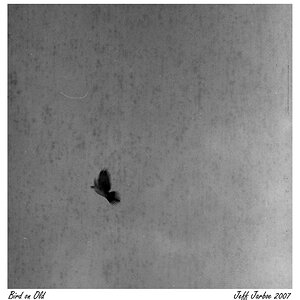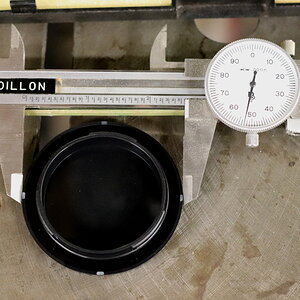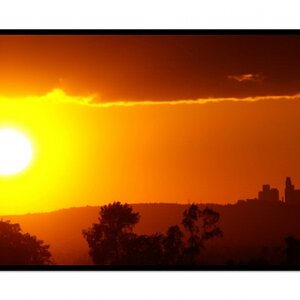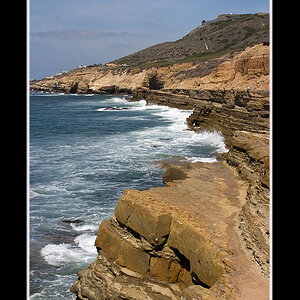ucddyan
TPF Noob!
- Joined
- Feb 25, 2008
- Messages
- 48
- Reaction score
- 0
- Location
- California
- Website
- www.freewebs.com
- Can others edit my Photos
- Photos OK to edit
Hello all. Still new to photography but I am concerned about one thing:
Needing permits when taking pictures in public places (like city parks, or here in SF at the golden gate bridge, etc.)
I contacted some people at the parks area and they said that you need a permit to take photographs for commercial gain. I asked specifically if I took a picture on a weekend vacation for instance at Fisherman's Wharf and two years later wanted to sell that photo, would a permit be required since I was on vacation and the answer came back as yes.
On the city website in particular it said that if there is a wedding party getting photos taken in a public park in San Francisco, the paid wedding photographer needs to get a permit to take the photographs.
I'm confused as to how so many people can take and sell pictures of cities and parks and people in these cities and parks and the such and have no mention of needing a permit from the city/state for these things. I know for people I need a model release and for private property or works of art I need a property release, but I find very little information on when/if permits are needed and where/how to get them. The other problem I have is as an amateur, paying $100 for a permit in a city to take some pictures that I may or may not sell one day is WAY out of my price range just starting off!
Is this a big issue or is it something minor that professional photographers tend to overlook or not worry about? Ideally I would like to focus on landscape photography in the future and this is a big concern for me especially. Does anyone have further information on this subject? Any help/advice would be appreciated.
Needing permits when taking pictures in public places (like city parks, or here in SF at the golden gate bridge, etc.)
I contacted some people at the parks area and they said that you need a permit to take photographs for commercial gain. I asked specifically if I took a picture on a weekend vacation for instance at Fisherman's Wharf and two years later wanted to sell that photo, would a permit be required since I was on vacation and the answer came back as yes.
On the city website in particular it said that if there is a wedding party getting photos taken in a public park in San Francisco, the paid wedding photographer needs to get a permit to take the photographs.
I'm confused as to how so many people can take and sell pictures of cities and parks and people in these cities and parks and the such and have no mention of needing a permit from the city/state for these things. I know for people I need a model release and for private property or works of art I need a property release, but I find very little information on when/if permits are needed and where/how to get them. The other problem I have is as an amateur, paying $100 for a permit in a city to take some pictures that I may or may not sell one day is WAY out of my price range just starting off!
Is this a big issue or is it something minor that professional photographers tend to overlook or not worry about? Ideally I would like to focus on landscape photography in the future and this is a big concern for me especially. Does anyone have further information on this subject? Any help/advice would be appreciated.


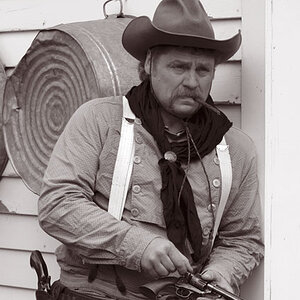

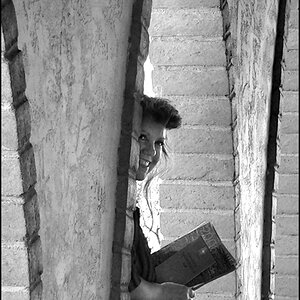
![[No title]](/data/xfmg/thumbnail/34/34114-dd12be026979ccd4182c5f478bd91448.jpg?1619736284)

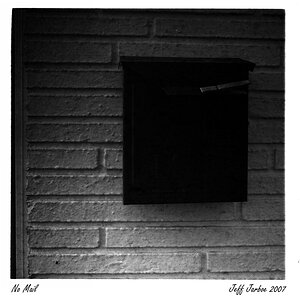
![[No title]](/data/xfmg/thumbnail/37/37531-a7bacbf9473d77872550297900cf8f89.jpg?1619738131)
![[No title]](/data/xfmg/thumbnail/37/37534-e0f67d1d14bd79cca15937359f0e4c94.jpg?1619738132)
